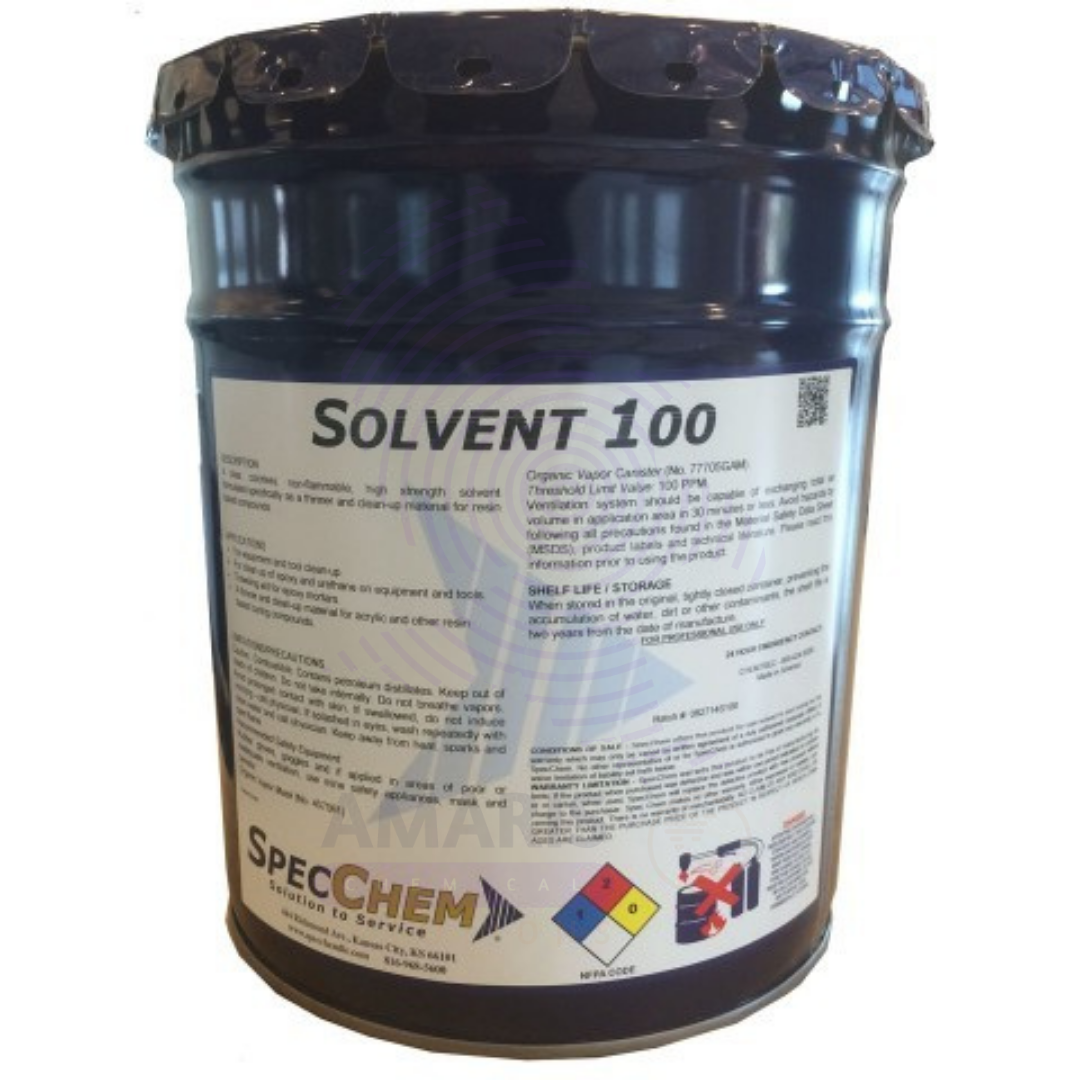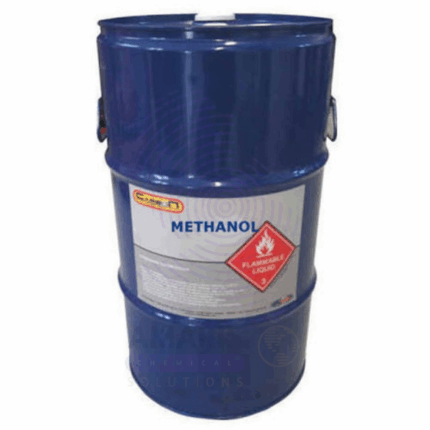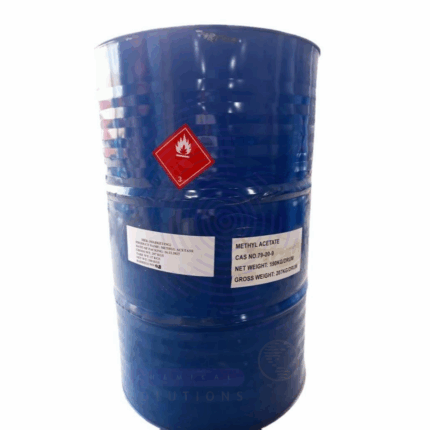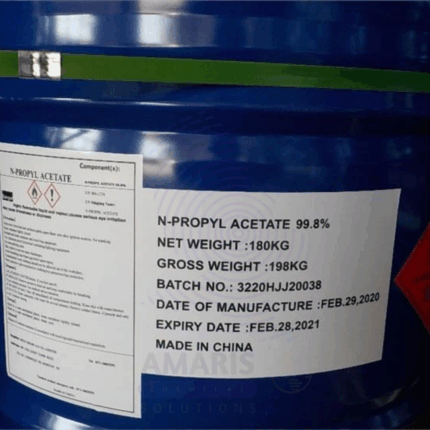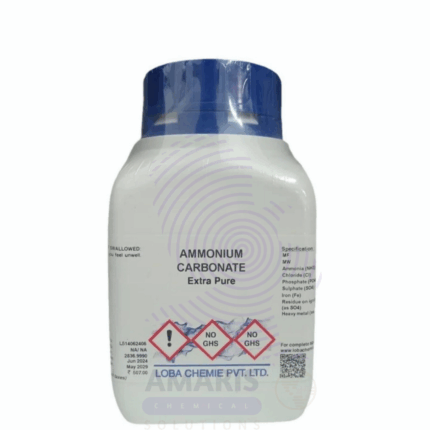
Ammonium Carbonate Extra Pure
$ 18.00 Original price was: $ 18.00.$ 17.34Current price is: $ 17.34.
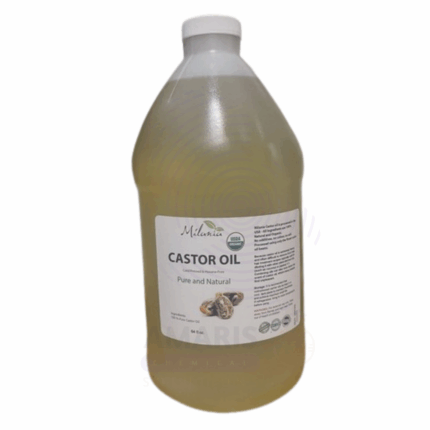
Castor Oil Food Grade
$ 4.79 Original price was: $ 4.79.$ 4.66Current price is: $ 4.66.
Naphta Solvent 100 Kokosal
Whatsapp Order
Naphta Solvent 100 Kokosal, commonly known as Kokosal, is a petroleum-derived hydrocarbon solvent composed primarily of aliphatic and aromatic hydrocarbons with a boiling range near 100°C. It is a clear, colorless to pale yellow liquid with a characteristic hydrocarbon odor. Kokosal is widely used as an industrial solvent due to its excellent solvency power, moderate evaporation rate, and compatibility with many resins, oils, and waxes. It is valued in applications such as coatings, adhesives, cleaning, and chemical synthesis.
Description
Table of Contents
Toggle
Naphta Solvent 100 Kokosal
Primary Uses
- Industrial Cleaning Solvent
- Used for degreasing and cleaning machinery, metal parts, and electronic components.
- Removes oils, greases, waxes, and dirt effectively from surfaces.
- Paints and Coatings
- Serves as a solvent and diluent in paints, varnishes, and lacquers.
- Enhances flow, leveling, and drying properties of coatings.
- Adhesives and Sealants
- Used as a carrier solvent in formulations of adhesives, sealants, and rubber cements.
- Provides suitable viscosity and drying characteristics.
- Chemical Intermediate and Extraction Solvent
- Employed as a solvent in chemical synthesis and extraction processes.
- Useful in refining or purification of oils and other organic compounds.
Secondary Uses
- Printing Inks
- Used as a solvent in solvent-based printing inks for flexibility and gloss enhancement.
- Pharmaceutical and Cosmetic Industries
- Occasionally used as a processing solvent for certain raw materials and intermediates (not for direct product use).
- Rubber and Tire Industry
- Used in rubber processing for cleaning and as a solvent carrier for additives.
- Fuel Additive
- Sometimes blended in small quantities as a fuel additive to improve combustion characteristics.
- Agricultural Chemicals
- Used as a solvent in formulation of pesticides and herbicides for effective application.
KEY PRODUCT FEATURES
Basic Identification Attributes
- Chemical Name (IUPAC): Complex mixture of hydrocarbons (Petroleum naphtha)
- Common/Trade Name: Naphta Solvent 100, Kokosal
- CAS Number: Mixture (Typical range 64741-44-2)
- HS Code: 2710.19.20
- Synonyms: Light naphtha; Petroleum solvent; Solvent naphtha (petroleum), light aromatic
Physical & Chemical Properties
- Physical State: Clear liquid
- Color & Odor: Colorless to pale yellow; characteristic hydrocarbon odor
- Boiling Range: Approx. 90–110°C
- Density: Approx. 0.70–0.75 g/cm³ at 20°C
- Flash Point: 27–38°C (closed cup)
- Solubility: Insoluble in water; miscible with organic solvents
Safety & Hazard Attributes
- GHS Classification: Flammable liquid (Category 3)
- Toxicity: Moderate; can cause skin and respiratory irritation
- Exposure Limits: OSHA PEL 500 ppm (for hydrocarbons)
Storage & Handling Attributes
- Storage Conditions: Store in cool, well-ventilated area away from ignition sources
- Container Type: Supplied in metal drums or approved solvent containers
- Shelf Life: Typically 1 year if stored properly
- Handling Precautions: Avoid open flames, sparks; use explosion-proof equipment
Regulatory & Compliance Attributes
- Complies with OSHA, EPA, REACH, and other relevant chemical safety regulations
- Listed in major chemical inventories worldwide
Environmental & Health Impact
- Biodegradability: Readily biodegradable under aerobic conditions
- Ecotoxicity: Moderate toxicity to aquatic life; avoid release to waterways
- Bioaccumulation: Low potential for bioaccumulation
Carcinogenicity/Mutagenicity: Not classified as carcinogenic
SAFETY HANDLING PRECAUTIONS
Safety Handling Precautions
- PPE Required: Gloves, goggles, and flame-resistant clothing recommended
- Handling Guidelines: Use in well-ventilated areas; avoid inhalation and skin contact
- Storage Measures: Keep containers tightly closed; store away from incompatible materials
First Aid Measures
- Inhalation: Move to fresh air; seek medical attention if symptoms persist
- Skin Contact: Wash thoroughly with soap and water
- Eye Contact: Rinse immediately with water for at least 15 minutes; seek medical attention if irritation persists
- Ingestion: Do not induce vomiting; seek immediate medical attention
Firefighting Measures
- Fire Hazards: Highly flammable liquid and vapor
- Extinguishing Media: Use foam, dry chemical, or CO₂ extinguishers
- Special Precautions: Wear self-contained breathing apparatus (SCBA) and protective gear
Hazardous Combustion Products: Carbon oxides, hydrocarbons, and other toxic fumes
Related products
Methanol
Methanol, also known as methyl alcohol or wood alcohol, is a clear, colorless, volatile, and flammable liquid with a distinct alcoholic odor. It is the simplest alcohol and is widely used as an industrial solvent, antifreeze, fuel, and chemical feedstock. Methanol is highly miscible with water and many organic solvents and serves as a precursor to numerous chemicals including formaldehyde, acetic acid, and various plastic
Methyl Acetate
Methyl Acetate is a colorless, volatile, and flammable liquid with a pleasant, fruity odor. It is an ester formed from methanol and acetic acid and is widely used as a solvent in coatings, adhesives, inks, and cleaning products. Known for its excellent solvency power and fast evaporation rate, methyl acetate is preferred in industrial and commercial applications where quick drying is essential.
N propyl Acetate
N propyl Acetate is a clear, colorless, flammable liquid ester with a fruity odor, chemically known as propyl ethanoate. It is widely used as a solvent in coatings, inks, adhesives, and cleaning agents due to its excellent solvency and moderate evaporation rate. N-Propyl Acetate is valued for its ability to dissolve various resins and polymers, providing good film formation and gloss in paints and coatings.
papain
Product Description
Papain is a proteolytic enzyme extracted from the latex of the papaya fruit (Carica papaya). It breaks down proteins into peptides and amino acids, making it widely used in various industries. Papain has excellent catalytic activity and works effectively across a broad pH range, especially in neutral to slightly alkaline conditions. It is valued for its meat tenderizing, digestive aid, and therapeutic properties.Resistance coil
Resistance Oil is a specialized essential oil blend formulated to enhance the body’s natural resilience and vitality. Derived from a carefully selected combination of botanicals known for their adaptogenic, immune-supporting, and energizing properties, this oil is prized for its warm, earthy, and slightly spicy aroma. The blend typically includes oils such as eucalyptus, rosemary, ginger, and frankincense, each contributing bioactive compounds like cineole, camphor, and alpha-pinene that provide antimicrobial, anti-inflammatory, and circulatory benefits. Resistance Oil is widely used in holistic wellness to support immune health, boost physical endurance, and promote mental clarity during periods of stress or seasonal challenges. Its balanced aromatic profile makes it suitable for therapeutic massage, inhalation, and inclusion in personal care formulations.
Shellsol T
Shellsol T is a low aromatic, high-purity petroleum hydrocarbon solvent known for its excellent solvency power and relatively low odor. It is a clear, colorless liquid commonly used in coatings, adhesives, inks, and chemical processing where strong solvency with moderate evaporation rates is needed. Its balanced properties make it suitable for industrial applications requiring controlled drying and good compatibility with various resins and polymers.
STPP (Granules)
Sodium Tripolyphosphate (STPP) in granulated form is a versatile, high-purity inorganic compound widely used in industrial, cleaning, and food processing applications. Presented as free-flowing white granules, this form offers excellent solubility and ease of handling, making it ideal for automated dosing and blending. Granular STPP is valued for its water-softening, dispersing, emulsifying, and preservative properties, supporting a wide range of formulations across multiple industries.
Sulphuric Acid 98%
Sulphuric Acid 98% is a dense, highly corrosive, and strong mineral acid widely used as a fundamental chemical reagent and industrial raw material. It serves as a key component in fertilizer production, chemical synthesis, petroleum refining, and many other industrial processes. The 98% concentration is the concentrated, nearly pure form commonly utilized for manufacturing and processing applications demanding high acid strength and purity.


 Preservatives(food)
Preservatives(food) Flavor Enhancers
Flavor Enhancers Acidulants
Acidulants Sweeteners
Sweeteners Antioxidants
Antioxidants Colorants(food)
Colorants(food) Nutraceutical Ingredients (food)
Nutraceutical Ingredients (food) Nutrient Supplements
Nutrient Supplements Emulsifiers
Emulsifiers
 Collectors
Collectors Dust Suppressants
Dust Suppressants Explosives and Blasting Agents
Explosives and Blasting Agents Flocculants and Coagulants
Flocculants and Coagulants Frothers
Frothers Leaching Agents
Leaching Agents pH Modifiers
pH Modifiers Precious Metal Extraction Agents
Precious Metal Extraction Agents
 Antioxidants(plastic)
Antioxidants(plastic) Colorants (Pigments, Dyes)
Colorants (Pigments, Dyes) Fillers and Reinforcements
Fillers and Reinforcements Flame Retardants
Flame Retardants Monomers
Monomers Plasticizers
Plasticizers Polymerization Initiators
Polymerization Initiators Stabilizers (UV, Heat)
Stabilizers (UV, Heat)
 Antifoaming Agents
Antifoaming Agents Chelating Agents
Chelating Agents Coagulants and Flocculants
Coagulants and Flocculants Corrosion Inhibitors
Corrosion Inhibitors Disinfectants and Biocides
Disinfectants and Biocides Oxidizing Agents
Oxidizing Agents pH Adjusters
pH Adjusters Scale Inhibitors( water)
Scale Inhibitors( water)
 Antioxidants(cosmetic)
Antioxidants(cosmetic) Emollients
Emollients Fragrances and Essential Oils
Fragrances and Essential Oils Humectants
Humectants Preservatives
Preservatives Surfactants(cosmetic)
Surfactants(cosmetic) Thickeners
Thickeners UV Filters
UV Filters
 Fertilizers
Fertilizers Soil Conditioners
Soil Conditioners Plant Growth Regulators
Plant Growth Regulators Animal Feed Additives
Animal Feed Additives Biostimulants
Biostimulants Pesticides (Herbicides, Insecticides, Fungicides)
Pesticides (Herbicides, Insecticides, Fungicides)
 Active Pharmaceutical Ingredients (APIs)
Active Pharmaceutical Ingredients (APIs) Excipients
Excipients Solvents(pharmaceutical)
Solvents(pharmaceutical) Antibiotics
Antibiotics Antiseptics and Disinfectants
Antiseptics and Disinfectants Vaccine Adjuvants
Vaccine Adjuvants Nutraceutical Ingredients (pharmaceutical)
Nutraceutical Ingredients (pharmaceutical) Analgesics & Antipyretics
Analgesics & Antipyretics
 Analytical Reagents
Analytical Reagents Solvents(lab)
Solvents(lab) Chromatography Chemicals
Chromatography Chemicals Spectroscopy Reagents
Spectroscopy Reagents microbiology-and-cell-culture-reagents
microbiology-and-cell-culture-reagents Molecular Biology Reagents
Molecular Biology Reagents Biochemical Reagents
Biochemical Reagents Inorganic and Organic Standards
Inorganic and Organic Standards Laboratory Safety Chemicals
Laboratory Safety Chemicals Specialty Laboratory Chemicals(Special Laboratory Equipment)
Specialty Laboratory Chemicals(Special Laboratory Equipment)
 Demulsifiers
Demulsifiers Hydraulic Fracturing Fluids
Hydraulic Fracturing Fluids Scale Inhibitors(oil)
Scale Inhibitors(oil) Surfactants(oil)
Surfactants(oil) Drilling Fluids
Drilling Fluids
 Dyes and Pigments
Dyes and Pigments Bleaching Agents
Bleaching Agents Softening Agents
Softening Agents Finishing Agents
Finishing Agents Antistatic Agents
Antistatic Agents
 Admixtures
Admixtures Waterproofing Agents
Waterproofing Agents Sealants and Adhesives
Sealants and Adhesives Curing Compounds
Curing Compounds Concrete Repair Chemicals
Concrete Repair Chemicals Anti-Corrosion Coatings
Anti-Corrosion Coatings
 Surfactants(cleaning)
Surfactants(cleaning) Builders
Builders Enzymes
Enzymes Solvents (Cleaning)
Solvents (Cleaning) Fragrances
Fragrances
 Electronic Chemicals
Electronic Chemicals Catalysts
Catalysts Lubricants
Lubricants Photographic Chemicals
Photographic Chemicals Refrigerants
Refrigerants Automotive chemicals
Automotive chemicals Pyrotechnic Chemicals
Pyrotechnic Chemicals
 Biodegradable Surfactants
Biodegradable Surfactants Bio-based Solvents
Bio-based Solvents Renewable Polymers
Renewable Polymers Carbon Capture Chemicals
Carbon Capture Chemicals Wastewater Treatment Chemicals
Wastewater Treatment Chemicals
 Pigments
Pigments Solvents(paint)
Solvents(paint) Specialty Coatings
Specialty Coatings Binders/Resins
Binders/Resins Additives
Additives Driers
Driers Anti-Corrosion Agents
Anti-Corrosion Agents Functional Coatings
Functional Coatings Application-Specific Coatings
Application-Specific Coatings
 Fresh Herbs
Fresh Herbs Ground Spices
Ground Spices Whole Spices
Whole Spices Spice Blends
Spice Blends Dried Herbs
Dried Herbs
 Leavening Agents
Leavening Agents Dough Conditioners
Dough Conditioners Flour Treatments
Flour Treatments Fat Replacers
Fat Replacers Decoratives
Decoratives Preservatives(baking)
Preservatives(baking)
 Plasticizers & Softeners
Plasticizers & Softeners Reinforcing Agents
Reinforcing Agents Adhesion Promoters
Adhesion Promoters Vulcanizing Agents
Vulcanizing Agents Antidegradants
Antidegradants Blowing Agents
Blowing Agents Fillers & Extenders
Fillers & Extenders Accelerators & Retarders
Accelerators & Retarders